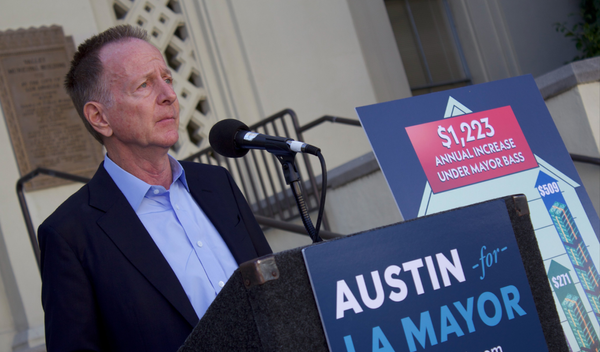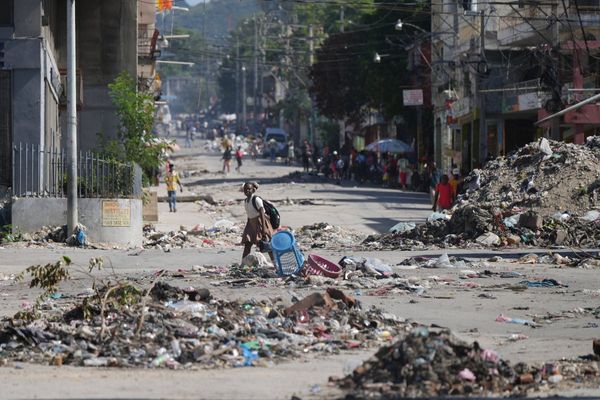
How to interview a writer whose account of the first 40 years of his life was so infinitely – perhaps I mean infernally – detailed, it ran to 4,000 pages? If I were Karl Ove Knausgaard, the writer in question, this piece would begin with a long description of my exhausted journey to meet him, having finished his new 800-page novel only hours before. It would continue with the walk from the bus stop to the hotel where we’ve arranged to meet, during which I see a writer almost as famous as he is, whose purchase of some little dental brushes in a nearby chemist brings me to consider the rather levelling fact that even great novelists suffer from gum disease. Finally, it would relate my deep anxiety, once inside the hotel, on seeing that the table right next to ours is occupied by a couple who even now are preparing to listen in to our conversation as if to a radio broadcast.
But it’s me, not Knausgaard, who’s writing this piece. So let’s cut to the chase. The most famous Norwegian writer since Henrik Ibsen is folded into a corner of a hotel restaurant somewhere in Bloomsbury. His T-shirt is black, his hair is pewter, and when I arrive, he stands to greet me, offering first a hand, and then a kind of shrug, as if to acknowledge as politely as possible the ludicrousness of the project on which we’re about to embark. Interviews are, he thinks, a bit artificial, though I shouldn’t worry that he’s tired of talking about himself. “I don’t give many,” he says, “so I don’t mind it.” The bigger problems, perhaps, are what I read as his shyness – he’s so much more costive than the Knausgaard on the page – and the discombobulating time-lag that invariably accompanies the publication of his novels. Today, he’ll have to turn his mind back to a novel that was published in its original Norwegian in 2021 – and which has already (in 2022) been superseded there by a new one. He works so fast. The rest of the world is always playing catch up.
The Wolves of Eternity is the second book in the series that began with The Morning Star, in which a violently bright celestial beam appeared in the sky, stirring a great restlessness in animals and people alike – though, in fact, the pair have little in common. It tells the story of two half-siblings: Syvert, who, when the novel begins in 1986, is 19 and living near Bergen with his mother and younger brother, Joar; and Alevtina, a Russian biologist and single parent whose principal academic interest is in plant consciousness. When Syvert is the novel’s narrator, as he is for 400 pages, the book is fully Knausgaardian: here are family struggles, difficulties with girls, and extensive digressions into football and the frying of fish. But there’s something else. Syvert dreams of his father, killed in a car crash nine years ago – a dream that provokes a conversation with his mother. This, in turn, leads to some letters from a woman his father had been in love with before he died, and the revelation that he had a daughter with her: Alevtina, who narrates most of the book’s second half. Only much later will a moment arrive that brings back into focus the weird events of The Morning Star.
“Yes, it’s the next book, which was published last year [in Norway], that kind of draws these first two together,” Knausgaard says. So is this a trilogy? “No. Another book is coming out soon in Norway, but…” He thinks for second. “I guess it has to be six books. I’m incredibly slow [at telling a story], as you know. I can’t make jump cuts. I have to describe how people get outside from inside, and so on. I’ll write 100 pages and nothing has happened. It takes many pages to move things on just a little bit.” But if The Wolves of Eternity only creeps along, it also makes grand detours into cosmism, a 19th-century Russian movement that aimed to abolish death, and, relatedly, the transhumanism currently so beloved of some billionaire tech bros. So how does he plan these massive books?
“Planning? No. I had a kind of arc, but there’s no planning.” What set him off? “It’s an old idea… it’s a bit embarrassing. But in the 90s, in Bergen, where I was studying, there were these devil worshippers, black-metal musicians. It was more extreme than punk. Some were incredibly destructive. They burned churches, there were murders. They were in the same city as me, the same age as me, but I didn’t really pay attention. Later, I started to get interested in the music and in the whole attitude, because in Norway, when I was growing up, there was nothing going on. There was only one TV channel. It’s a kind and gentle society, and then you have these violent outbursts, and I wondered where it came from. I thought that one day I’d like to write about it. The idea was: they worship the devil, but what if they succeeded, and he came back in Bergen, in 1990? That was the starting point. All of that is the backstory.”

I’ve no clue how all these things – the death metal, the transhumanism, the glowing morning star – might fit together in the end; if what he says about planning is true, perhaps Knausgaard doesn’t either (though he tells me there’ll be more about the music in the fourth book). But what is clear is that his pace is extraordinary and unrelenting: a prolixity that’s all the more astonishing if you know that when he reached the end of the autobiographical sequence whose English title is My Struggle, it seemed he might not write a novel ever again. I can’t work out how he does it. Isn’t it exhausting? All-consuming? He smiles. “No, it’s very simple. The key is not to think about the writing as good or bad, but to follow your fascination. That is hard, because there’s so much pressure to think of quality and self-presentation; to not appear stupid, or whatever. But the writing itself is easy.”
As half the world surely knows by now, he began work on My Struggle, which was published in six volumes between 2009 and 2011, as a means of overcoming writer’s block: “When I first started writing, I was incredibly self-conscious and self-critical. I somehow published two novels, but then I had five years of not being able to write. I had a set of pages that were just beginnings, beginnings, beginnings. With My Struggle, I learned to lower the threshold; to accept whatever comes; to continue and not to throw away anything; and to do it every day.” The process, he insists, isn’t any different even now, for all that his most recent books are fiction, with multiple narrative voices: “The writing is the same; you just put yourself in a different place. There are so many things I’m interested in.”
Whatever his subject, he works for five hours a day, and then he stops: “I’m the most privileged and lucky writer in the world. My editor [Geir Gulliksen] has done the job for 25 years now, and every day, I write my three pages, and I send them to him, and the next morning, I get a reply – and it has been like that from the beginning.” But if he isn’t interested in changing or rewriting anything, what on earth does an editor do? He struggles to explain it to me. “It’s not about correcting things. It’s more like an ongoing conversation.” What would happen if Gulliksen was to say he’d had enough? That he wanted to make a bid for freedom? Again, he smiles. “He could do that if he wants to.” And? Would he be able to write without him? “Yes, I think so.” From his tone, I can’t tell whether he’s confident or uncertain.
***
Knausgaard, who was born in 1968, grew up on Tromøy, the largest island in southern Norway, and after university in Bergen, did various jobs as he tried to become a writer, among them working on an oil platform and in a psychiatric hospital. In 1998 and in 2004, he published two novels, Out of the World and A Time for Everything, both of which won prizes in Norway. But then, as we’ve heard, he fell silent, the result largely of his battle to fictionalise his relationship with his father. (Every sentence, he once said, “was met with the thought: ‘But you’re just making this up. It has no value.’”) This quiet lasted until he began work on My Struggle, the series of books that would change his life.
What happened? One minute, I’d never heard of him; the next, I was walking in the country with a friend – a man – who couldn’t stop talking about his books, which fascinated him in ways he wasn’t fully able to explain. In Norway, their publication was semi-scandalous. His honesty, in a country where there is, as he now says, no culture of memoir, was perceived as shocking – or at any rate, thrilling enough to make them huge bestsellers (a statistic I’ve read, perhaps wildly out of date by now, is that one in 10 Norwegians has bought at least one of the books). Reporters tracked down those he’d mentioned. His then wife had a breakdown. His father’s family cut him off (he sent the first book to them in manuscript, but when they objected, he published anyway, a decision that filled him with guilt afterwards). Meanwhile, outside Norway, the cult of Knausgaard spread. English language fans could hardly wait for each volume to appear. Zadie Smith said she longed for them “like crack”.
Book one describes his father’s death from alcoholism in the filthy house he shared with Knausgaard’s ailing grandmother. In book two, he relates his abandonment of his first wife, Tonje Aursland, and his move to Sweden, where he ends up renting an apartment in the same building as a woman under whose spell he’d once been, Linda Boström Knausgaard (his second wife, and the mother of four of his children). But it’s book three, in which his childhood recollections include a comical account of a certain part of his body, that troubles me today. As he picks at his caesar salad, and I try to eat a cheese sandwich, the body part in question keeps bobbing up in my mind. All in all, I would say he’s a challenging interview, mostly because it’s as if I’ve seen him in the shower or something.
Does he feel naked as he moves through the world, everyone knowing so much about him? And if this is the case, has he become alienated from his innermost self? “Good question,” he says. For a moment, he’s quiet. “The gap between writing My Struggle and what happened [afterwards] was so huge that it’s impossible to bridge, really. I was writing small, small things about myself – a miniature life – and then all those other things happened, and it was alienating, yes. But what it has led to is that I can live off my writing, and I get published, after years of being rejected. I think about that every day, and I appreciate it.” All this is, he says, a strangely abstract business for him. It’s the reader’s relationship with the books that’s intimate, not his relationship with the reader.

He lives in London now, with his third wife, Michal Shavit, who acquired My Struggle when she was the editorial director of Harvill Secker – they have a son together – and he likes it a lot. But this isn’t any kind of exile. His other children are here, too, and in any case, going back to Norway isn’t complicated at all – or so he insists. “It’s a conflict, but not an acute one. It’s due to the books, and it’s not solved, and it will always be there.” So some of his family still don’t speak to him? “No, I haven’t been in touch with them since I sent them a copy [of My Struggle] before publication. It’s an understandable conflict, but it’s not fun to talk about.” Is he sad about it? “No, no, no, no… it’s just a matter of fact. To have a nephew or a cousin who wrote about the family was cruel, because they couldn’t do anything about it. But on the other hand, I wrote about my father because I needed to. So, it’s impossible to solve…”
What about his mother’s side of the family? “I had a very close relationship with my mother when I lived with her as a teenager. I talked about everything to her, and I still do. It was my brother who had to take the punches when it was published, because I wasn’t there. He said to me: ‘One day, I’ll show you what they’re writing about you.’ He was protecting me. But in My Struggle I write that when I’m with my brother, we never look each other in the eye, and we never shake hands – and it was very moving for me because not only did he read it, he looked me in the eye [the next time we met]. It was total acceptance from him, and there were tough things in there. He was so generous to take it, and he didn’t get the payoff that I did.” Did the books make his friends and family wary? Did they worry they’d appear in some future volume? He smiles. “No. Maybe it was the other way round. It was worse not to be in it than to be in it.”
What about his children? Wouldn’t reading My Struggle be excruciating if he was your father? But he’s sanguine. “They very much have their own life, and I’m very much the father, not the writer. But one day, when I’m gone, I hope they’ll see there’s love in it.” I take this as a reference to the many accounts of childcare in the books, work he often finds exasperating and boring. But no, this isn’t what he means. “It’s to do with being honest about things,” he says. Is honesty always best? Does he still believe this after all the he has been through? “No, I don’t think so. In a lot of social circumstances, you have to be considerate and decent. It wouldn’t be a better society if everyone told the truth. On the contrary, in fact. But yes, I do think that in certain other ways, honesty is an act of love.” His voice, soft at the best of times, is now so gentle, the couple next to us finally concede defeat, and at last ask for their bill.
The Wolves of Eternity is published on 5 October by Harvill Secker (£25). To support the Guardian and Observer order your copy at guardianbookshop.com. Delivery charges may apply







